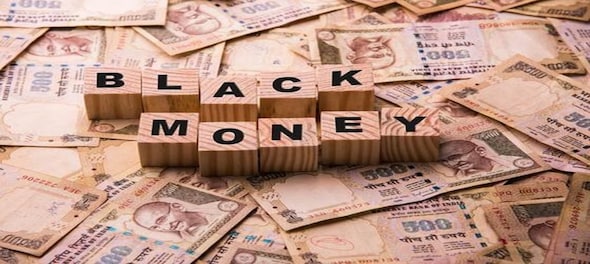
Last week, when huge amounts of cash were unearthed at the residence of Arpita Mukherjee, actress and close aide of tainted TMC leader Patha Chatterjee, investigators also uncovered trails of cash to more than 14 shell companies, some of which were registered under Mukherjee's Belghora residential address.
These shell — also known as “Jamakarchi" — companies are used across India for money laundering — in layperson's terms, turning black money to white.
The shell companies have an entire, illicit industry of their own. A person associated with this "industry" says Kolkata is the hub of shell companies through which there was a steady flow of unaccounted-for cash. “A shell company is the best, almost legal way to route money. People have earned crores of rupees this way," this person said.
News18 waded into the seedy underbelly of Kolkata's shell company industry and spoke to insiders, who deal with such companies with regularity.
What is a shell company and how does it operates?
A shell company is one that exists in name only and is used as a vehicle for deft financial manoeuvres or one that is kept dormant and activated for future use in some other capacity.
Such a corporation exists only on paper and has no office or employees. But, and this is a big but, the company may hold a bank account or passive investments, or can be the registered owner of assets such as intellectual property, or ships.
The shell company culture began in Kolkata from the 1980s and has since flourished, insiders say.
News18 tried to contact the operators of shell companies — many attempts later, a person who calls himself an agent for shell companies in Mumbai, but lives in Kolkata, agreed to talk, but strictly on the condition of anonymity.
This person told News18 that crores of money moves through byzantine channels and changes hands a dizzying number of times before it is considered laundered — black from white, essentially.
“In 2011, India had nearly 20 lakh shell companies," he said, "then, strict regulation of the IT sector and other, stringent rules helped reduce this number."
He claims that 5 lakh companies still operate in Kolkata.
According to this "agent", shell companies have three tiers. "Suppose you want to launder Rs 5 crore, you will call me and tell me what you need. Then there's this frontline shell company, which is registered and follows all norms," he explained.
He said this company takes in the money and shows it as investment or loan, or "something like that" . "Your money is now 'white' and for this, you will give me a 2 percent commission . Now, income tax officials only check up to the third tier," he said, "for example, A, B, and C started a shell company. I-T department asks 'A' about this money, 'A' says he has got it from 'B'. when questioned, 'B' says he got the money from 'C'. I-T goes no further."
Now, as to why Kolkata is considered a shell company haven, the agent explained: “See, the commission in Kolkata for depositing such shell companies is 2 percent. It is 10 percent in Bengaluru and 8 percent in Delhi. That's why Kolkata is preferred."
That said, the agent said the number of shell companies has been on the decline since 2012.
When asked about the volume of transactions, he said, "Crores main khela hotha hain madam!"
All shell companies follow rules of company fund transfers, and even hold Annual General Meetings, as was done in the Arpita Mukherjee case.
Strange how crores of rupees are legitimised through this system.
According to a businessman, who requested that his name be not mentioned, shell companies now are dying because of regulation, but still, crores of rupees are channelled through this system .
"There is another problem — there is no definite system which can show this as being criminal until the I-T department or ED comes into the picture."
One senior police officer told News18, “Offences committed by shell companies are primarily tax evasion and money laundering. Any case of money laundering or tax evasion is primarily cheating/fraud. This is very minimal and not serious enough to attract serious punishment; further we don’t have all the information, unlike the I-T dept, on such transactions .”
Taking advantage of this, shell companies have become a conduit for money laundering.
(Edited by : Vijay Anand)
First Published: Aug 7, 2022 10:56 AM IST
Check out our in-depth Market Coverage, Business News & get real-time Stock Market Updates on CNBC-TV18. Also, Watch our channels CNBC-TV18, CNBC Awaaz and CNBC Bajar Live on-the-go!


BJP's Hindi heartland dominance faces test in phase 3 polls
May 2, 2024 9:14 PM
Lok Sabha Election: Re-elections at a Ajmer booth after presiding officer misplaces register of voters
May 2, 2024 4:54 PM

